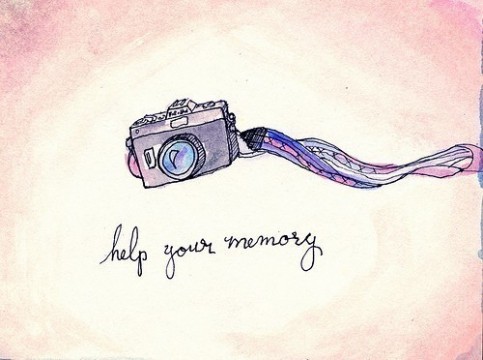Fight Compassion Fatigue – It’s All in How You Carry Things
We have more charities today than we had five years ago.
But just because there are more charities doesn’t mean people are giving more. One study, in fact, showed after the number of charities went up, the level of donations went down (plummeted 14% within a six year period).
Whoops.
Why? The slumps in giving may be due to what experts refer to as “Compassion Fatigue.” In other words, you get tired of being hit up for help.
Compassion Fatigue comes into play most for those who are regularly exposed to others’ suffering, like social workers, doctors and military members. But it affects those of us outside the helping fields as well.
We see one too many bumper stickers, one too many re-tweets, one too many buy-this-product-and-benefit-x-cause and our brains appear to reach their caps. Suddenly, even though our eyes and ears are still viewing and hearing the ongoing call to charity, it as if our brain starts discarding the same kind of information we used to respond to.
The University of Queensland is looking into this phenomena in their new study.
And it’s a good thing too. Our awareness about what leads to Compassion Fatigue, and how to avoid it, is pretty important. Because even though it might be easier to “cope” with suffering by deadening ourselves to it, becoming numb is the same thing as throwing up the white flag to suffering.
So what can you do to fight fatigue and keep compassion pumping through your heart? Here are two observations from my own quirky life:
1. Share the heavy stuff, so you learn to carry it “lighter.”
Really. You may think some problems have too many complexities, are beyond solving, and thus aren’t worth bringing up in conversation.
But here’s what a lot of us (yes, me too) often miss: the purpose of talking ISN’T just to hunt for conclusions to problems, it’s to maintain your humanness as you deal with them.
(i.e. Talking doesn’t necessarily help you put down the weight altogether. But in letting someone else carry your crap with you for a second, you gain a reprieve, and maybe a few ideas about how to adjust your grip.)
2. Carry the positive longer.
In a recent interview, author Michael Bergeisen said it this way:
All kinds of good things happen in our daily life that we hardly notice at all, and if we do, we don’t feel it. Some one pays us a compliment, we hardly pay attention to it, or we deflect it. …The way to remember some thing is to make it intense, felt in the body, and lasting. That’s how we give those neurons lots and lots time to fire together so they start wiring together. So rather than noticing it and feeling good for a couple of seconds, stay with it.
Things that help me stay with the good?
Change what you work to remember. It’s easy to count the people who’ve betrayed you, to add up the number of conversations that didn’t go perfectly, or to bemoan the things you could’ve done better. But what if you made a point every day–as you lay down to sleep, or at some natural reminder-point in your schedule, to think about the good. Who is on your side this year that wasn’t last year? What conversations have gone really right? What things–even small things–fell into place the way you needed them to?
Celebrate small things. Give yourself permission to be in an extra good mood because something simple went right. You found a parking space quickly? Awesome. You hit all green lights on the way home? The world is yours!
Or, if you burned it hard at both ends to finally finish an important project? You might even legislate an intentionally “carefree” hour or two (where you set those to-do lists out of sight) to treat yourself to something you enjoy.
Always counter the negative…even to yourself. One thing I noticed about my college roommate in adulthood is that even in hardship–being a single mom of a special needs child–she would never end a sentence on a negative note. “It’s been insane lately,” she’d say before always–as a practice adding, “but he’s a trooper and he’s going to get through it.” I find that when I follow suit, forcing myself to find a “positive exit” before ending a negative thought, I stop programing myself to believe life sucks and I start teaching myself that there is opportunity to move beyond hardship.


